
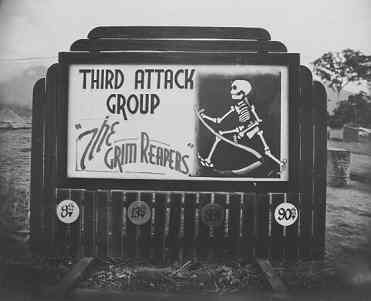
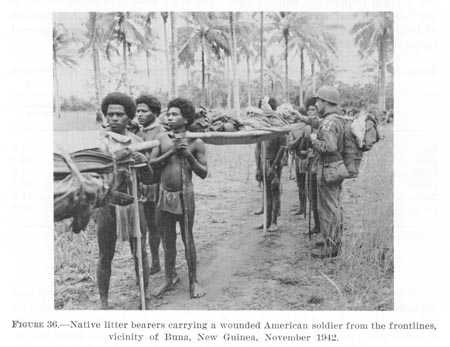
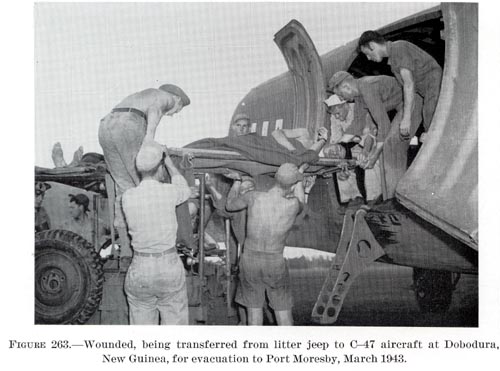
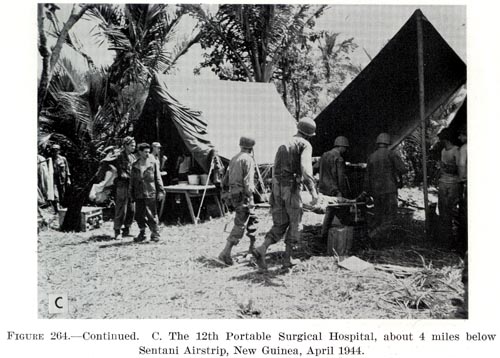
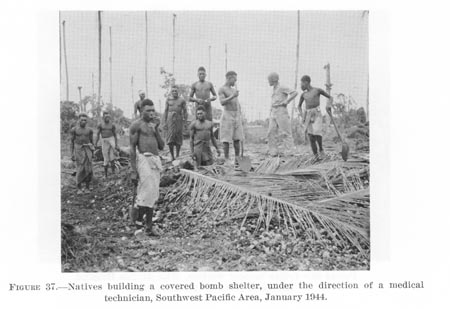
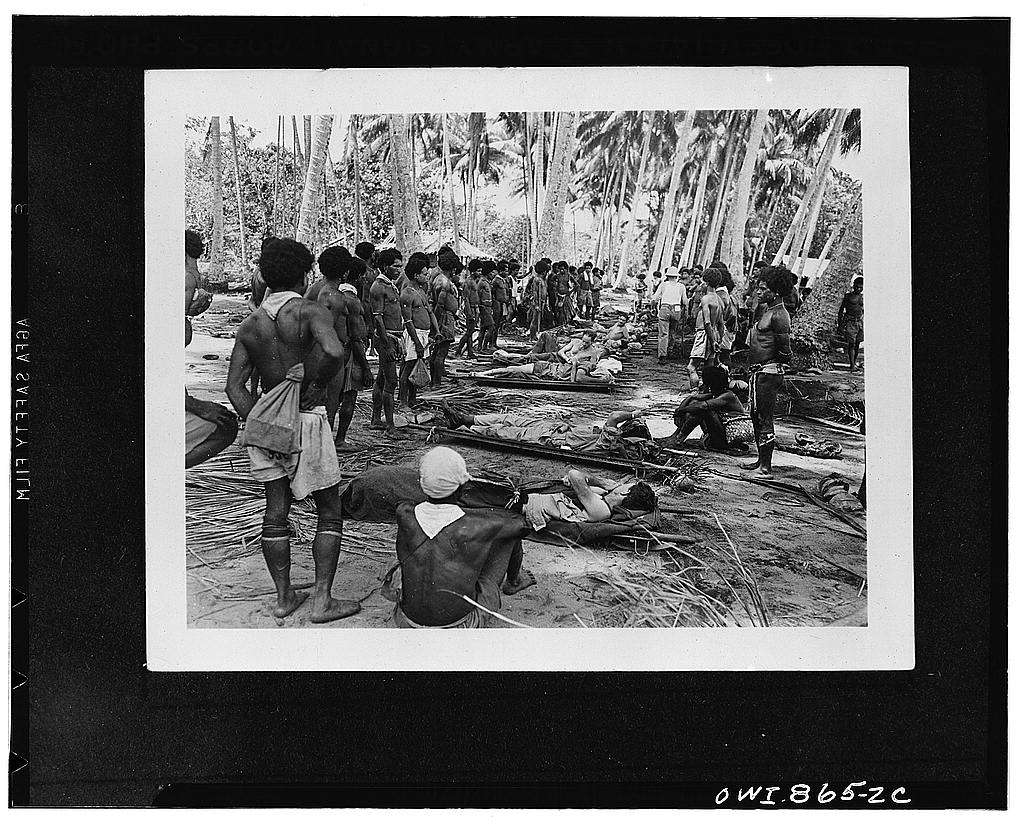
Buna (vicinity), New Guinea. Native stretcher bearers in New Guinea carrying American wounded from the front lines pause to rest themselves and the soldiers in the shade of a coconut grove, enroute to hospitals in the rear
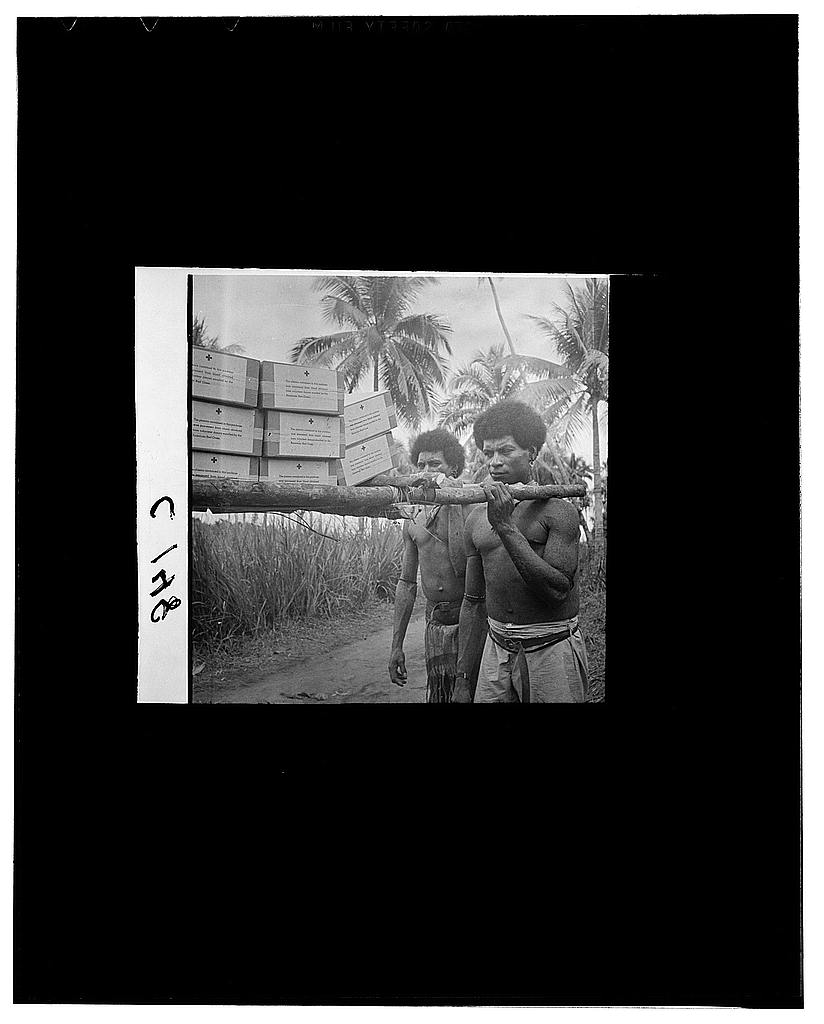
Buna, New Guinea. Papuan natives shouldering litters carrying blood plasma to the evacuation stations just behind the front liine at Buna. They are given a large measure of credit for the Allied successes in New Guinea. The litters are made of betelwood, by hand, and bound with bark rope
US forces on landing found locals volunteering to guide them to the best vantage points against the Japanese, while others volunteer to follow unarmed to the battle lines to bring any wounded back to medical care. The US forces enjoyed a relatively low 15% mortality of troops wounded in the New Guinea jungles. The Japanese efforts to destroy local food gardens and physical acts including cutting off the hands of Papuan men unwilling to cooperate, appear to have backfired as the West Papuan population made the produce of their vast networks of food gardens available for the some half million Americans who moved through the West Papua headquarters General MacArthur decided to establish in the heart of this Ally territory.
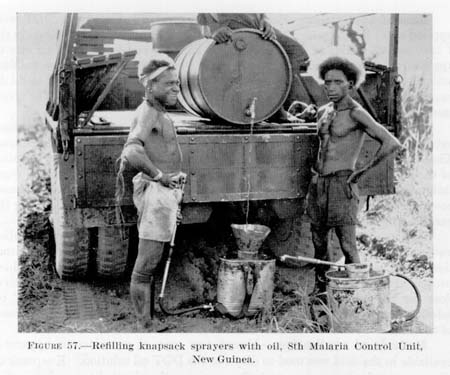
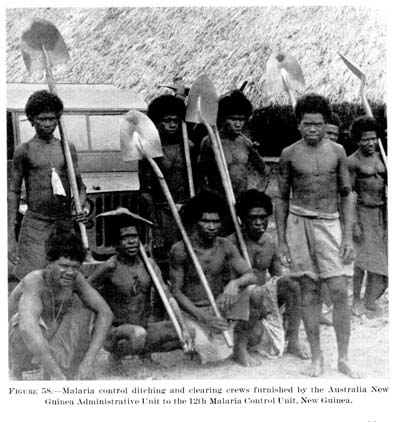
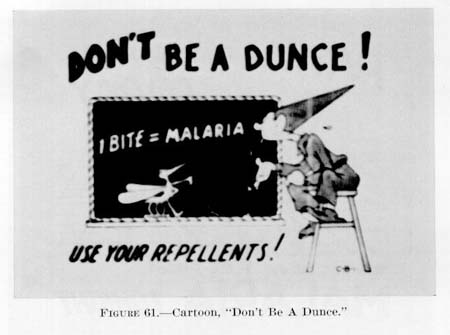
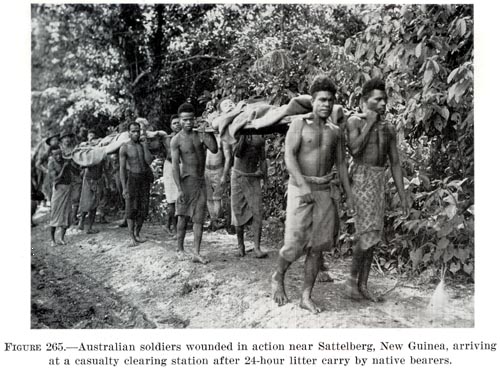
19 JUNE 1944. A native guide indicating a passage through the reef.
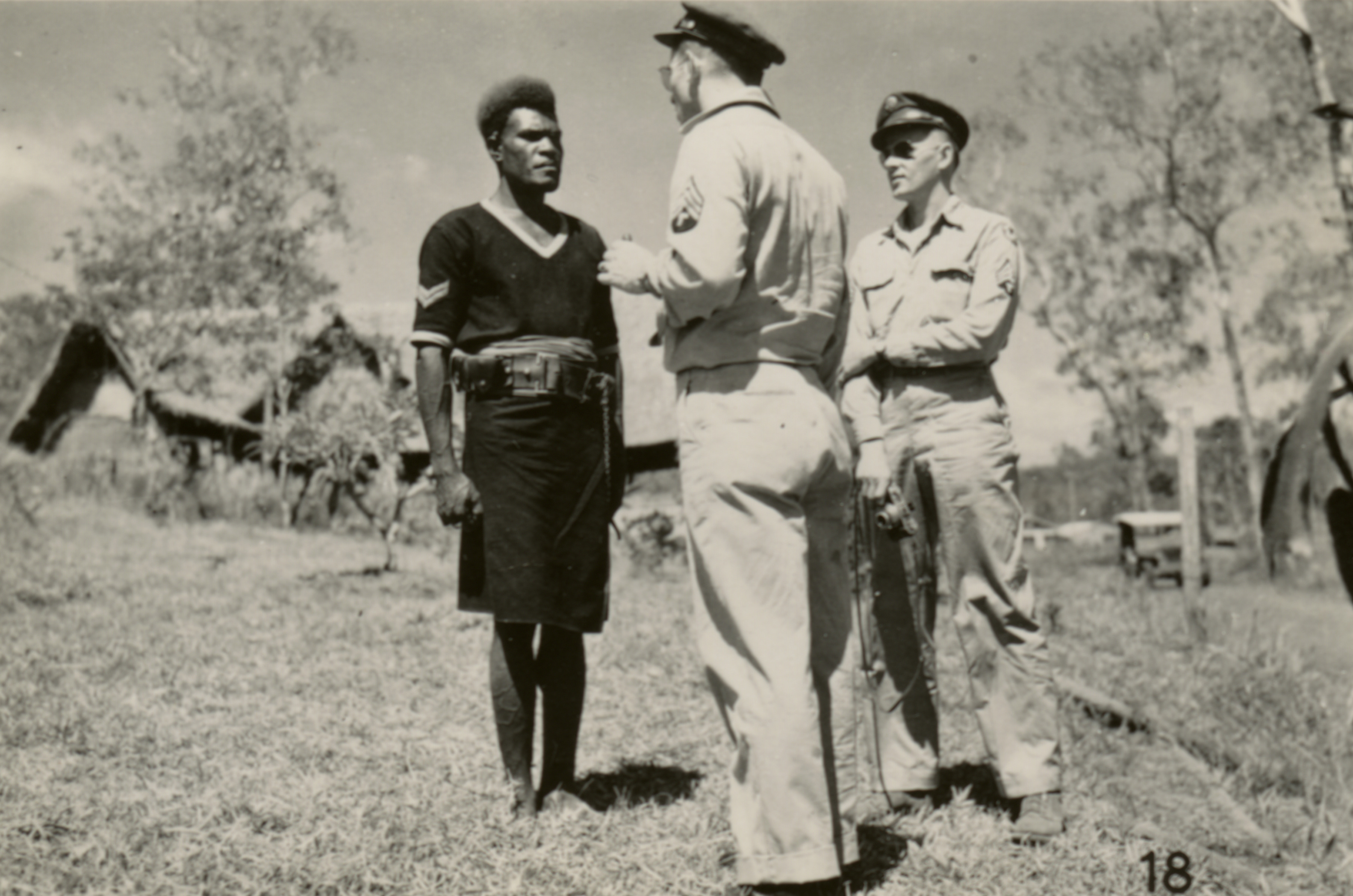
Native policeman and American servicemen. "'Palaver'. This native speaking with the American GI'S is a member of the Papuan Constabulary, native police force for the territory, whose job it is, under ANGAU, to maintain discipline over possible recalcitrant native help. They are quite proud of their selection as members of the police and are adept at drill and anything resembling military routine."